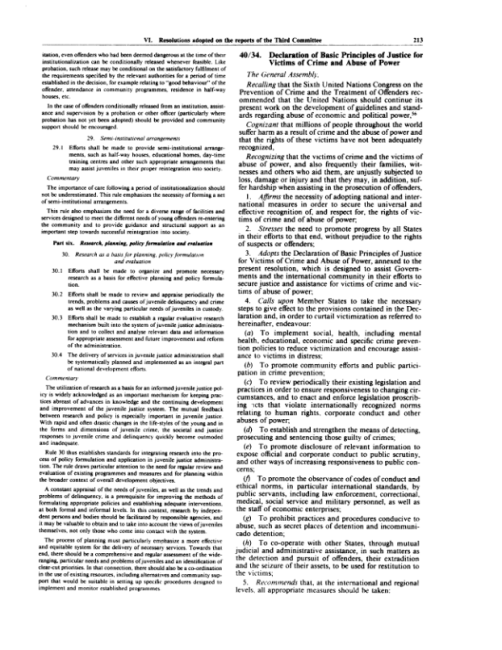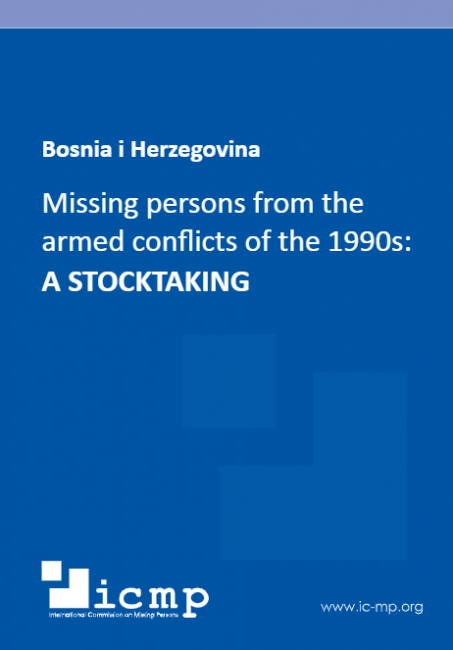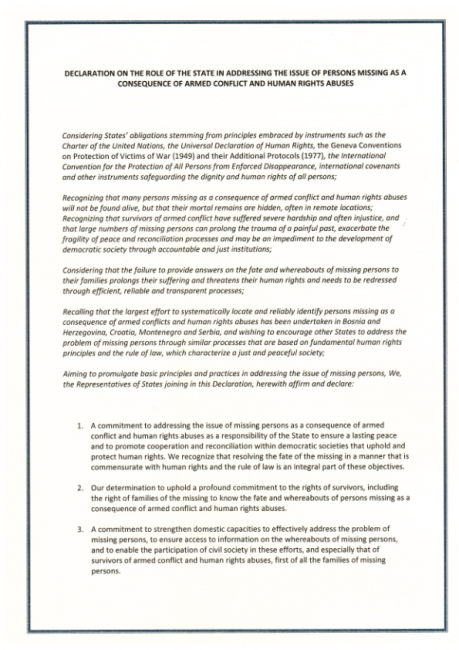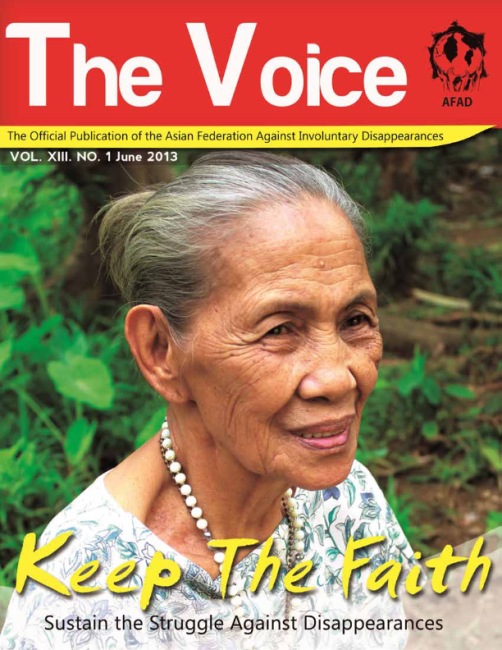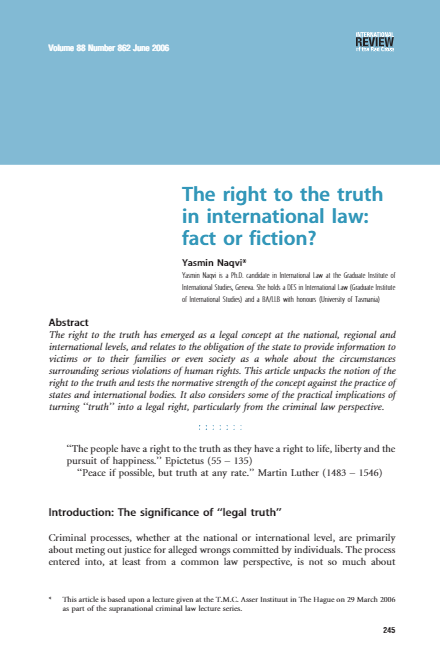
Journal
The right to the truth in international law: fact or fiction?
International Review of the Red Cross, Volume 88 Number 862, June 2006
Author
Yasmin Naqvi
Publication Year
2006
Region
Global
Thematic Area
Law & Policies
Topic
Criminal Justice
/
Family Needs
/
Law – International
/
Reconciliation
/
Right to Know/Truth
Access
Open access
The right to the truth has emerged as a legal concept at the national, regional and international levels, and relates to the obligation of the state to provide information to victims or to their families or even society as a whole about the circumstances surrounding serious violations of human rights. This article unpacks the notion of the right to the truth and tests the normative strength of the concept against the practice of states and international bodies. It also considers some of the practical implications of turning ‘‘truth’’ into a legal right, particularly from the criminal law perspective.
Share


